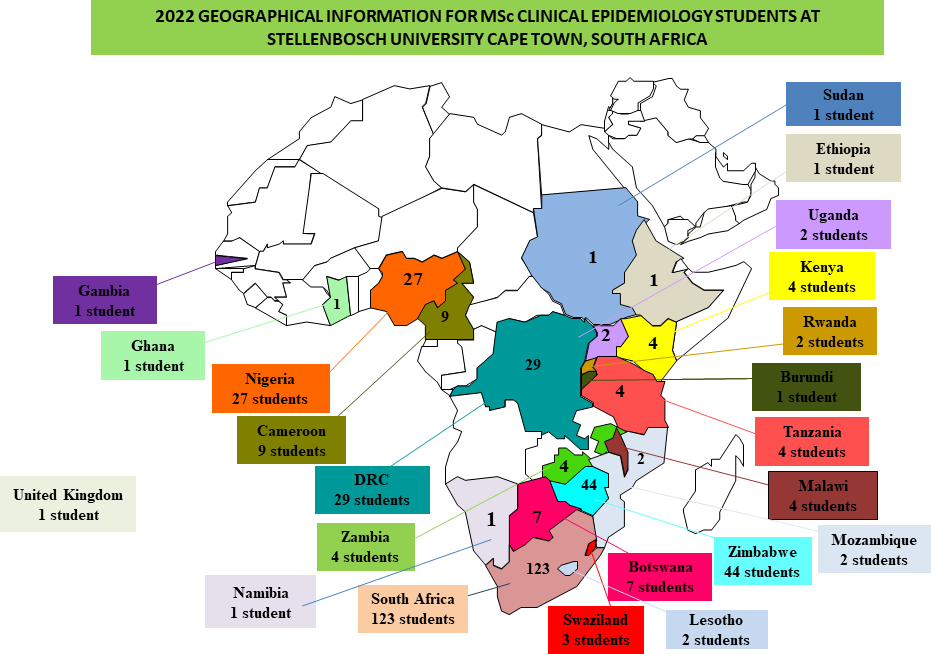Masters
MSc Clinical Epidemiology
Clinical Epidemiology is the science of applying the best available research evidence to patient care. It uses the methods of epidemiology to find scientifically valid answers to questions concerning diagnosis, prevention, therapy, prognosis and aetiology, thus improving the evidence-base for the care of individual patients.
The course offers rigorous methodological training for those with a background or experience in a health-related discipline who wish to pursue a career in clinical research or evidence based practice. The programme would be of interest to potential researchers who require robust training in research techniques, including advanced concepts and methods of epidemiology.
- World class teaching faculty
- Highly sought-after career path
- Unprecedented work opportunities
- Multi-disciplinary environment
This structured Masters Programme covers basic and applied epidemiological concepts, approaching clinical situations from an evidence-based perspective, training in ethics, statistical programmes, study designs and systematic reviews. The research project will be an ongoing 2-year process for the duration of the programme, culminating in submitting a research article for publication. At this stage, the programme is presented using a combination of face-to-face teaching and e-learning.
By 2019, the programme has graduated 152 students since the first cohort started in 2008, with more than 60 graduates publishing their research in peer reviewed journals.”

Programme structure
The programme consists of modules with a total of 120 credits and a research project of 60 credits.
You must complete ten modules (eight compulsory and two elective modules). The choice of elective modules depends on meeting relevant prerequisites for the modules and avoiding timetable clashes with core modules. Elective modules require a minimum number of 10 students. You must attend compulsory contact sessions and participate online in e-learning sessions.
Compulsory modules
First year
Fundamentals of Epidemiology
|
Biostatistics I
|
| Research Proposal Writing and Grantsmanship |
Systematic Reviews and Meta-analysis
|
Biostatistics II
|
Second year
Diagnosis and Screening
|
| Randomised Controlled Trials |
| Writing and Reviewing Scientific Papers |
Elective modules
Choose two of the following modules.
First or second year
Infectious Disease Epidemiology
|
| Economic Evaluation in Health Care |
| Qualitative Research Methods for Health |
Second year
Introduction to Health Systems and Public Health
|
| Clinical Guidelines |
| Teaching Evidence-based Health Care |
| Survey Methods |
Health Policy Analysis
|
Cancer Epidemiology
|
Research project
The completed research project must be submitted in the prescribed format and will be assessed by both internal and external examiners.
Specific admission requirements
- One of the following qualifications:
- an MB,ChB or equivalent degree;
- a four-year professional bachelor's degree in a health-related discipline;
- a BScHons degree of this University or another recognised university; or
- an equivalent qualification approved by Senate.
- If you are an international student, you must provide proof of the equivalence of qualifications that you obtained at non-South African institutions. This requires submission of a SAQA (South African Qualifications Authority) certificate.
- Mathematics at National Senior Certificate (NSC) level, computer literacy and fluency in written and spoken English. If you, as an international student, are from a non-English speaking country, you must submit official documentary evidence with your application of your competence in English.
Candidates are selected on academic merit and all applications are reviewed by a selection committee. Only a limited number of students is admitted to the programme.
National applicants can apply online at www.maties.com by 30 September of the previous year. Applications for prospective international students close on 31 August.
Applications should include:
- Completed application form
- Letter of motivation
- Academic Record
- Curriculum Vitae
- Matric certificate (Secondary qualification)
- Proof of English Proficiency (applicable to international applicants)
- SAQA certificate (applicable to international applicants)
For enquiries contact: mclinepi@sun.ac.za or Anthea Henry ahenry@sun.ac.za

